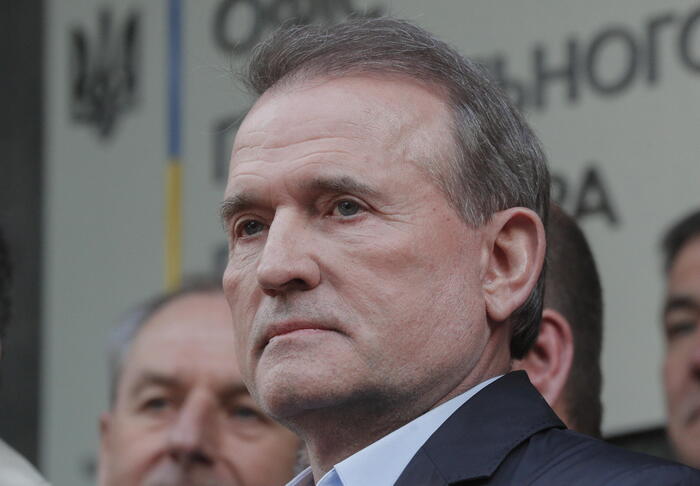If the establishment of the joint list in 2015 was the one who thought and even estimated that this is the framework that will unite and unify the Arab public as a national minority in the State of Israel for many years. Seven years later, we're back to square one.
Until its establishment, mainly following the increase in the percentage of obstruction, there were four Arab parties that ran in three lists: Hadash-Ta'al who ran together, Balad and Ra'am, who each ran separately.
The campaigns were conducted in a matter-of-fact manner, and the parties each competed for their target population.
Together they managed to reach 11 mandates, and cooperated in the parliamentary activity around most issues, as one bloc.
After the establishment of the joint venture, and at the level of political activity in Arab society, the differences between the parties were slightly blurred.
The communist ideology is a member of the Islamic ideology, and the Islamic one is a member of nationalism (some would say nationalism).
Where else in the world - especially in the Arab world - can we see such a connection?
The joint list inspired hope when its members presented themselves as united for the sake of the entire Arab public in Israel, and with their promise to act on its behalf, and to bring significant achievements in the standard of living and personal security.
The joint list did increase representation, and some of its members are proud of their contribution to the end of Netanyahu's rule.
However, in practice, the joint venture cooperated closely and effectively with the Netanyahu governments - mainly around the promotion of the 922 government program with the investment of billions of shekels in Arab society.
However, the political crisis gave its signals: RAM, as remembered, withdrew from the joint venture and entered the coalition, in a move that is considered historic and which will stand up to a major test in the upcoming elections. In these elections, Balad is once again running alone.
Back to the pre-2015 era.
"One can understand the claim that Balad's move gave Netanyahu and Ben Gvir power as a gift," says Dr. Salim Barik, a lecturer and researcher at the Open University.
"Netanyahu can now develop momentum as if the elections have already been decided, both because of the 30-40 thousand votes that Balad may drop down the drain, and also because of the amount of desperation from politics that they add to the atmosphere among the public, whose motivation to vote is already low.
But to the same extent this move can also play in Lapid's favor.
Here the separatist BLD moved aside, and now Ayman Odeh and Ahmed Tibi, the more legitimate ones, can recommend him to form the government."
And this understanding corresponds to reality?
"BLD does indeed operate from a pure ideology.
In her view, there is no purpose in participating in the coalition, and in any case, Lapid and Gantz are no different from Netanyahu in her eyes.
The United Arab List, Ra'am, advocates an approach that serves the will of the majority of voters, about 65% of the Arab public, who favor partnership in the coalition and a direct influence on government policy. To a large extent, Odeh and Tibi also tend to accept this approach. The joint in its current composition - Hadash -Ta'al - although it has weakened, but it is hard to believe that it will not pass the blocking percentage. The United (RAM) is also with us and there is no fear that it will fall.
But it is important to raise the voting rate which is unprecedentedly low.
In the last elections, the voting rate was 44.6%, and now the polls predict that it will drop below 40%."
between bad alternatives
"The trend could actually reverse," says statistician Dr. Hisham Jobran, director of the Afkar Institute, who claims that there is already evidence of the area's awakening. "There could be a big surprise, even though the Arab voter is also exhausted from the elections.
There is a feeling among the Arab voter that he is transparent all year round and is only remembered during elections, and this is an attitude that comes from all parties without exception.
Arab society is bleeding, violence is rampant and there is no treatment for it.
It is absurd to come to the Arab voter, who lives in a very difficult daily situation, and ask him to get up and vote 'to save democracy'."
So what message should come with?
"I think that the great challenge of the parties is to motivate the Arab public to action, that is, to get up and vote. In my opinion, there will be a lot of such efforts from parties and other bodies. It may not make a change, but it will move the voting rate up a little from the low it has reached. I believe that if it is created A good atmosphere in the competition between the parties, the Arab voter may respond to the call and go out to vote. Although it is less likely that we will reach a turnout rate of 65% as was the case in the recent past."
Let's try for a moment to map the problems and dilemmas of the Arab public.
"Arab politics is at a very important crossroads in regards to the status of Arab citizens in Israel. On the one hand, there are forces that are trying to pull in the direction of parliamentary participation only without joining one coalition or another. And there is the larger side, which actually tends in the opposite direction, whether it is through joining a coalition or With outside support, or by another patent - including a recommendation for a candidate to form the government. The key figure is that 70 percent are interested in seeing an Arab party in the coalition, and that says it all."
And what about the entry of Arab representatives into Zionist parties?
"If the Arab voter wants to join Zionist parties, he had many opportunities to do so in all the recent election campaigns. In practice, only about 20% voted for Zionist parties. At the same time, I wonder if the Zionist parties will agree that the Arabs will be an influential part of the content. In light of what you see Now, and in all the previous elections, the major parties not only did not appeal to the Arab voter, but they distanced themselves from the Arabs so that their base would not be harmed. So do you want them to accept him as a member and as an influencer within their parties?"
How do you explain the indifference or disappointment in the Arab street, precisely after a year of partnership in the coalition?
"The Jewish voter is debating between two contrasting alternatives. There is one good alternative for him, no matter if he is from the right or the left, and on the other hand there is a completely bad alternative. This contrast makes it easier for the Jewish voter to decide and choose the right side for him. For the Arab voter, it is a different story. , he has to choose between the evil and the lesser evil. So it is very likely that he will choose the lesser evil, or alternatively he will turn his back on both, and will choose complete avoidance or indifference to both alternatives. Many among the Arab citizens are not optimistic, others are disappointed by the Arab leadership that has split twice, and some have come to the conclusion that there is no place for the Arabs in the Knesset and that they are waging a war in which the loss is known in advance."
improved joint
Yosef Shufani, a 45-year-old media person from the village of Mailia in the Western Galilee, has voted all his life in the Knesset elections.
This is a village where most of the residents are Christians, and most of them are Hadash voters, and then - the joint party. He will not participate in the next elections. who aspires to be in the decision-making circle, and is tired of the excuses of the party leaders who prefer to live in eternal opposition.
On the other hand, the parties that call themselves 'Zionist parties' are not in consensus with themselves.
It is doubtful if they really want a full and real partnership with Arab parties - or if they are simply looking for support from the Arab voices."
So who are you more disappointed with, the Arab leadership or Israeli politics?
"Both together. We see no real change in the behavior and conduct of the so-called Arab leadership. The Arab leadership repeats the same platform and the same statements in every election, and expects change to come in a different way. Einstein once said: You cannot repeat the same mistake and expect a different result. Jewish-Israeli politics rejects us. There is a kind of failure to accept the reality that we are citizens who deserve full national and civil rights. The German Jew or the French Jew or the American Jew receive their rights as citizens regardless of their nationality. In Israel the situation is completely different. This is not a democracy fully towards the Arab citizens".
Do you think that the Arab representation in the Knesset in the current situation will be harmed?
"Yes, it will be affected dramatically and even fatally. There may be a situation where there will be no representation of an Arab party in the Knesset, for the first time since the establishment of the state, because the current quarrel between the joint venture and Balad and Ra'am is destructive. It looks like a fight in kindergarten. And society The Arab is suffering, worried, angry and very disappointed."
If we vote and there is representation - we will have no influence, and if we don't vote there will be no representation and we will be harmed... which is better?
"The tragedy is that in both cases we will be hurt. So far there have been at least ten members of the Knesset representing Arab parties, and the effect was zero. Even when RAM joined the coalition, we saw no real effect.
We know that the Arabs in Israel will always be the tool of election propaganda that the right will always pull out to instill fear and rejection of everything related to Arabs and representatives."
So how should the Arab citizens of Israel conduct the struggle for political representation?
"The right solution is to establish one big party that represents all currents, without ideology, i.e. neither communist nor ultra-nationalist, nor religious. A party that will bring broad support from Arab society, with new blood, dynamic people, who do not give up basic rights, They strive to enter the coalition, they adjust their positions to reality, they are decisive, they form a bridge to peace between the Palestinian side in the West Bank and Gaza, they do not fight for their egos, and they also know how to fight the false propaganda about the Arabs that comes from the right."
We are all in the same boat
Fadi Kassem, a social activist from Acre, is one of Ta'al's supporters. He is already aware that it is going to be complex and difficult to get people to the polls on election day, and at the same time he says: "I really believe in the members of the joint venture and their abilities, especially MK Ahmed Tibi, whose experience contributed a lot to Arab society."
Kassem admits that he too has anger towards the Arab leadership.
"Yes, I'm disappointed, I don't hide my feeling. And I say to all the leaders, enough. Stop. We're all in the same boat. Together we reached 15 mandates, and today we won't reach 10. What a waste. With 15 mandates, no government can exist Without the Arabs - and we can do it again."
Do you think the Arab representation will be harmed?
"Yes. Absolutely. The representation will be harmed and the parties will receive a strong blow. I expect a result of four mandates for Hadash-Ta'al, and four mandates for Ra'am.
And when we have people like Ben Gabir in front of us, it is important that we have as large a representation as possible in the Knesset."
Compared to Fadi, Gadir Mansor from Tira has no hesitation.
"I am not voting in the next election," she states firmly when I ask her if she is disappointed.
"I'll surprise you with my answer, I'm really not disappointed, because from the beginning I had no expectations from them. I've already been slapped and I've grown up from it. I realized that I'm not ready under any circumstances to be part of the game if I'm not 100% me. I don't want to bet on my future, not to enslave my values and certainly not to settle for crumbs or condition my behavior on receiving budgets."
Mansur's words reflect something deep from disappointment;
A kind of understanding that none of the models tried in recent years - a joint list or the entry of a party into a coalition - really changes the structure of political power in Israeli society.
"This is what I hope the Palestinian citizens of Israel will take into account and not forget. The election game cannot suit us, because we are actually outside of any party or political equation," she concludes.
It is difficult to assess how dominant this approach is, and I definitely hear contrary voices as well.
"Voting was given to us as a right so that we can influence and change the worsening state of society. This is my right as a citizen of the country, and no one gives it to me graciously, especially to me as an Arab minority," Jehan Melhem, an educator, political and social activist, who served as CEO, tells me. The leader of the local council, Jadeida Makar. The division in the Arab parties causes her great concern. "We may pay dearly for this and there is a situation where we will wake up with zero Arab representation in the Knesset," she states. "Unity brought a significant achievement of 15 mandates, which is unprecedented."
From what you see on the ground, will the Arab representation be harmed?
"Yes, unfortunately the representation is going in a bad direction. The voting rate is not encouraging even before the split of the joint venture, and we will see very low voting figures. All because of the lack of trust between the Arab public and the parties that are supposed to represent it, but also the lack of trust of the Arabs in the country and its institutions adds Much to the feeling of indifference. The crime and the intensification of the gaps between Jews and Arabs, and the fact that the Arabs are on the political, economic and geographical margins - this is a recipe for despair. And despite the disappointment," she concludes, "the Arab public must go out and vote and yes, flock to the actual polling stations and raise their representation in the Knesset in order to influence and change ", she says, describing a great fear of the results of the division in the Arab parties.
All is not lost
Melhem can draw slight encouragement from many in the Arab public who testify to despair, disappointment or hesitation until the last minute - but on election day they still go out to vote.
"This is how it is in every election," Sufian Daher, an economist from Acre, who describes himself as a constant undecider, shares with me.
"I don't want to vote - but on election day the feeling will be that my vote is the one that will decide the election system. I am not disappointed in Israeli politics, because I have no expectations from it. But in my opinion, any division of the Arab parties in any form will harm the chances of more seats in the Knesset, whatever That the Arab citizen becomes indifferent and tired, with every election that passes, and especially loses confidence that the representation in the Knesset is at all effective in anything."
So you are saying that there is no need for Arab representation in the Knesset at all?
"It is clear that we need Arab representation in the Knesset. We are a minority - but a strong minority, but the representation should be conducted differently. For decades Arab representation has not influenced Israeli politics. First of all, because the attitude is seen as hostile by the Zionist administration and any low voter turnout leads to less Arab representation The Arab parties are supposed to play the political game and not be emotional."
Ali Zibek Majdeida also sold among the undecided.
He is a social and political activist who has not missed a political or social demonstration or protest for decades.
Farthest from indifference or political avoidance.
Field person of direct participation and daily involvement.
And despite his active activity, he talks about hesitation.
"In the past I voted for Balad, which during Azmi Beshara's time led the idea of a state of all its citizens that gives equality to all the citizens of the state, including equal representation in the law, in the institutions and symbols of the state.
But those who led the party failed in leadership, which caused abandonment especially during the war in Syria." The connection to the affiliate deepened the disappointment, according to him. "The line led by the leader of the affiliate, Hadash member Ayman Odeh, was actually a type of Meretz B. His predecessors in the position were different Absolutely, and they waged a real political struggle, especially for the rights of the Palestinian people. All of this is absent from him today, and there is no difference between Odeh, Tibi and Abbas. The latter was 'brave' and came out of the closet first, after recommending Gantz twice.
We've tried almost everything. What do you think is the long-term solution?
"There is another way to conduct the national struggle of the Arab society, and that is through direct elections to the Supreme Monitoring Committee for the Arab public, within which there will be a liaison committee with the government and state institutions and perhaps even receiving cultural and educational autonomy, with municipal management, and the establishment of an Arab civil guard that will fight crime with the same powers For the police, all this for a five-year trial period."
were we wrong
We will fix it!
If you found an error in the article, we would appreciate it if you shared it with us

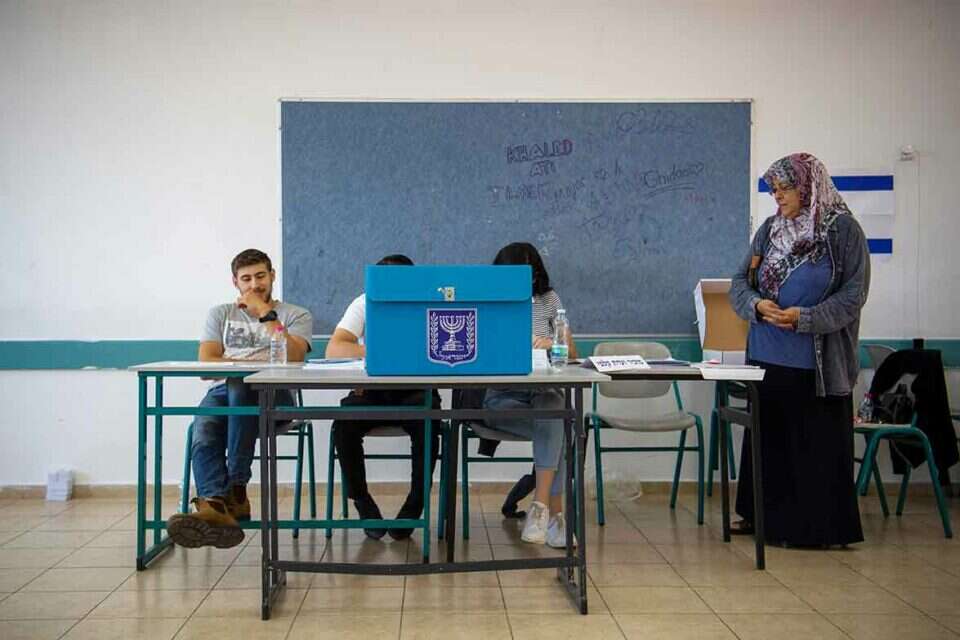


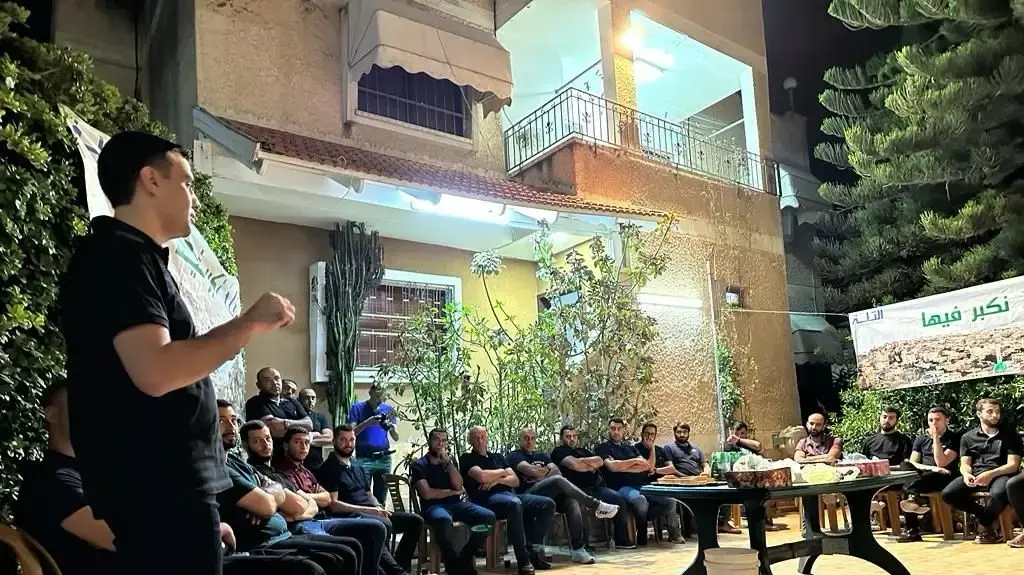

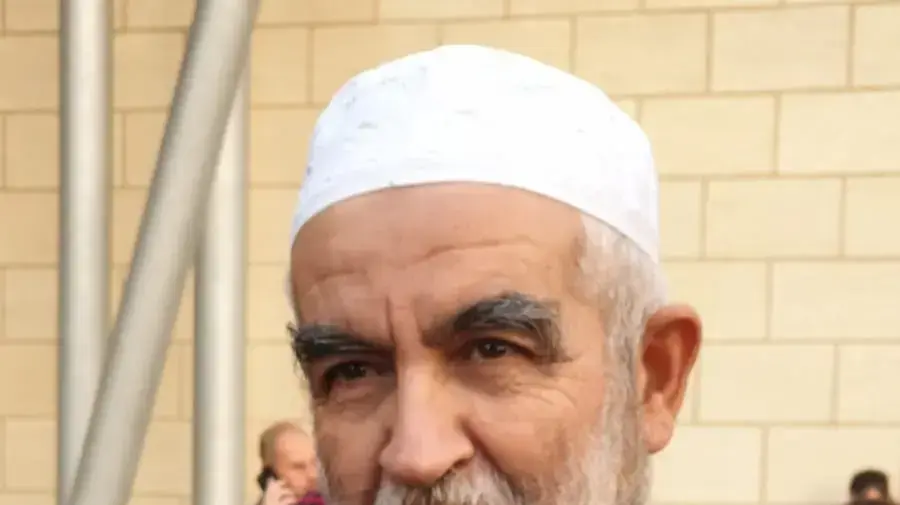
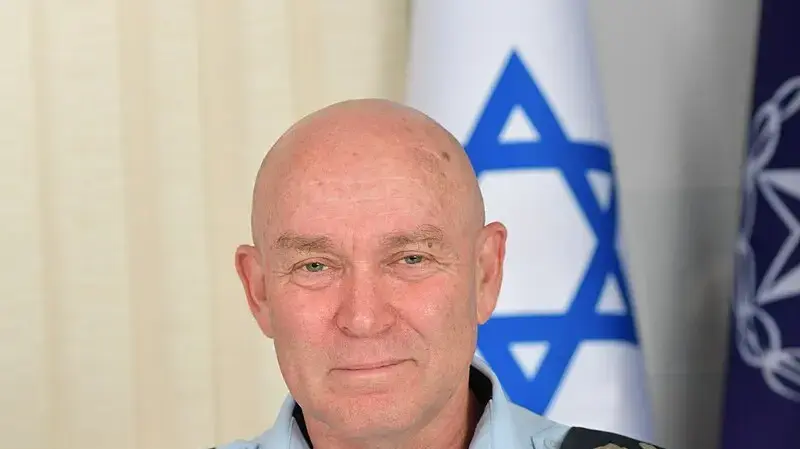
/cloudfront-eu-central-1.images.arcpublishing.com/prisa/3JYBYIKF4VE6HFBF74Q3XUM75Q.jpg)
